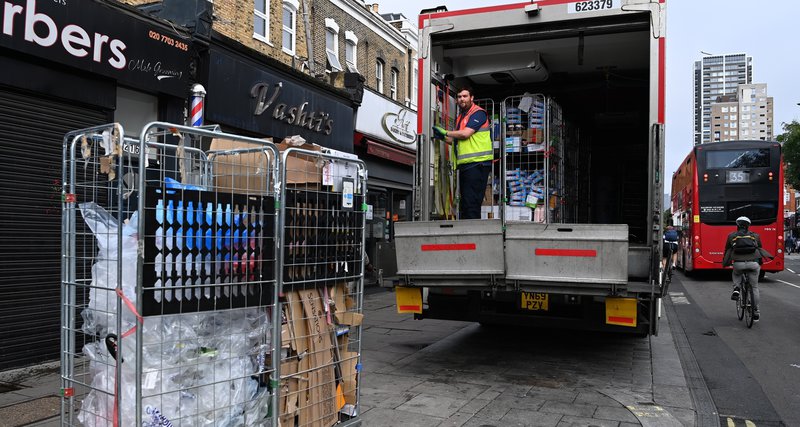Long-term resident
Broken it
Every few months, as any hypothetical regular readers of this column might know, the need is felt to blow off some heavily pressurised steam about Brexit, that event built on an illegally funded campaign stuffed with alternative facts which left no less than 1.2 million British citizens - 22,000 of them in Catalonia - deprived of the right to vote for anything, anywhere: we are right up there with women before 1920. And that’s not all: in 2017, the Daily Telegraph, for which Boris Johnson used to spin anti-EU yarns masquerading as news articles, claimed in an editorial that it was necessary ‘to cut the EU red tape choking Britain…to set the country free from the shackles of Brussels’. Well, one of the UK’s main exports to the EU is food, and - now that the Brusselonian shackles are off - for each and every consignment of edibles, an export health certificate (EHC) now has to be completed, consisting of between 70 and 80 pages, all of which, the blank ones included, have to be printed out then signed and stamped by a certifying officer after he or she has inspected the said foodstuffs. This process has to be repeated in several different languages: English, plus the language of the port to which the consignment is being sent (usually French or Dutch) plus that of the country where the consignment will end up (German, Italian, Latvian…). If any of the paperwork is missing, goods are partially or completely unloaded at the port of entry. Each EHC costs €230, which is why the cost of exporting to the EU has gone up between 60% and 100%. According to Dominic Goudie, head of the international department of Britain’s Food and Drink Federation, sales to the EU have dropped by 2 billion pounds sterling, on top of which the loss of around 100,000 European lorry drivers and countless EU seasonal workers - Bulgarians just don’t think picking English strawberries is worth the bureaucratic bother they now have to go through first - is beginning to leave gaps on supermarket shelves, not least because food imports from the EU are also down by around 18%, a figure which will rise when the UK introduces its own health inspections in its ports on the first day of 2022. With the result that many companies - not just food producers - are moving their operations to the EU, causing an increasing loss of British jobs. And here in Catalonia, we UK passport holders will have to deal with yet more of that red tape which the Daily Telegraph assured us would vanish into thin air with one wave of the Brexit wand: the Spanish government has created a brand new residents’ card - the TIE (Tarjeta de Identitad Extranjero) - just for us! And what fun we’ll have collecting all the necessary documentation required and then queuing for an impossible-to-calculate period of time in a police station to get that card pressed into our little non-European hands.
The Irish Times columnist Fintan O’Toole has pointed out in a recent article that Brexit, when all is said and done, is a classic case of ‘imaginary revenge’ (a term coined by Nietzsche, apparently): when people feel disempowered - and who doesn’t these days? - they can be easily fooled into believing they have a long-standing enemy on whom they can successfully wreak revenge. The advocates of Brexit created an entirely fictitious or at least grossly exaggerated image of a bureaucratically challenged, money-grubbing, sovereignty-despising EU, and laid all imaginable (and often imagined) evils at its door. This fantasy failed to dupe the Northern Irish, the Welsh, the Scottish and the Londoners, but did manage to bamboozle what O’Toole calls ‘the rest of England’. However, the real problem with imaginary revenge, he points out, is that, being phantasmagorical, it can never be satisfied, and therefore continues to generate problem after problem. And not a day goes by when that has not been the case since Brexit ‘got done’, to paraphrase Boris Johnson’s favourite slogan. (Meanwhile the British establishment - a real enemy, if you like - is still calling the exact same shots that it’s been firing ever since Greenwich Mean Time began). In a recent parliamentary report, an executive from the British Meat Processors’ Association said that it ‘feels as though we have stepped back into the 1950s’. Not quite: back then, remember, we used to have an empire.


